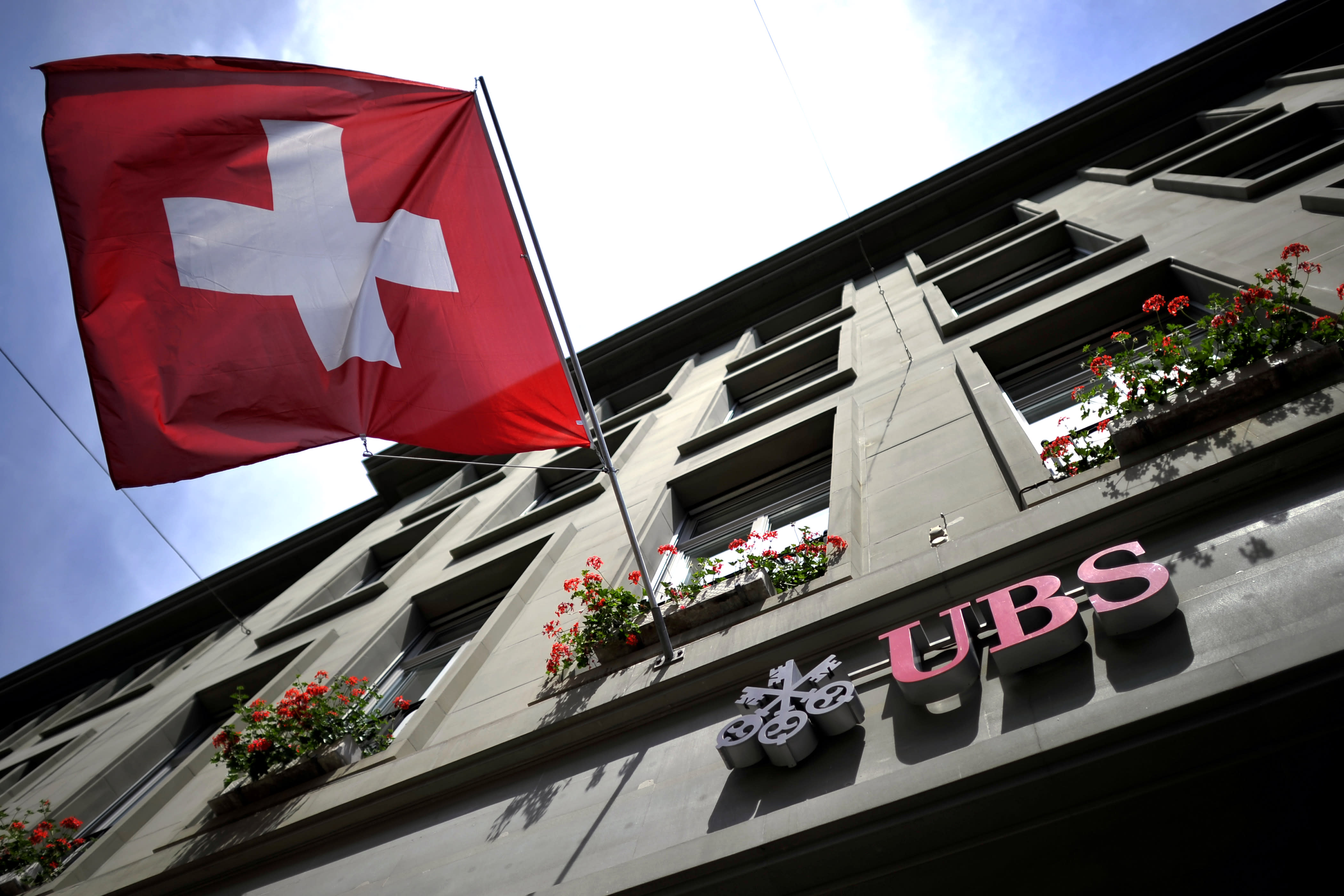- UBS agreed Sunday to buy its domestic rival Credit Suisse for 3 billion Swiss francs ($3.2 billion) as part of a government-backed, cut-price deal.
- Swiss officials and regulators helped streamline the deal, which came amid fears of contagion to the global banking system after the collapse of two smaller U.S. banks in recent weeks.
- “Switzerland’s position as a financial center has eroded,” Opimas CEO Octavio Marenzi said in a research note. “The country will now be seen as a financial banana republic.”
Switzerland, heavily dependent on finance for its economy, is on track to see two of its largest and most popular banks merge into a single financial institution.
Fabrice Gaffrini | Afp | Good pictures
The demise of banking giant Credit Suisse has sent shockwaves through financial markets and is seen as a blow to Switzerland’s reputation for stability, with one executive suggesting investors now regard the mountainous Central European country as a “financial banana republic”.
Switzerland’s biggest bank UBS agreed on Sunday to buy its domestic rival Credit Suisse for 3 billion Swiss francs ($3.2 billion) as part of a cut-price deal backed by the government.
Swiss officials and regulators helped streamline the deal, which came amid fears of contagion to the global banking system after the collapse of two smaller U.S. banks in recent weeks.
The rescue deal means Switzerland, a country heavily dependent on finance for its economy, is on track to see its two largest and most popular banks merge into a single financial institution.
“Switzerland’s position as a financial center has eroded,” Opimas CEO Octavio Marenzi said in a research note. “The country will now be seen as a financial banana republic.”
“Credit Suisse’s failure will have a serious impact on other Swiss financial institutions. The country’s reputation for prudent financial management, good regulatory oversight and, frankly, being boring and boring with respect to investments,” Marenzi said. .
Shares of UBS rose 4.4% at 11 a.m. London time (7 a.m. ET) on Tuesday, extending gains after rising in the previous session.
Credit Suisse, meanwhile, ended Monday’s session down 55% and traded 0.4% lower in morning deals.
Under the emergency takeover terms, investors in Credit Suisse’s additional tier-one bonds — widely considered a relatively risky investment — would see the value of their shares reduced to zero. That means around 16 billion Swiss francs worth of investments will become worthless.
AT1 bonds, also known as contingent convertibles or “cocos,” are a type of debt that is considered part of a bank’s regulatory capital. Holders can convert them into equity or write them down in certain circumstances – for example when the bank’s capital ratio falls below a pre-agreed threshold.
“The extraordinary government support will prompt a full write-down of the nominal value of all of Credit Suisse’s AT1 debt in the amount of approximately CHF 16 billion, thereby increasing core capital,” Swiss regulator FINMA said. said Sunday.
The unusual move contradicts the usual practice of putting bondholders ahead of shareholders when a bank fails on Monday, sparking turmoil in the market for convertible bank bonds.
Vitor Constancio, who served as vice-president of the ECB from 2010 to 2018, said on Twitter that FINMA’s announcement was “a mistake with consequences and a series of court cases”.
Both the European Central Bank and Britain’s Bank of England tried to distance themselves from FINMA’s decision.
EU regulators, the European Central Bank, the European Banking Commission and the Single Resolution Board, said On Monday they will continue to impose losses on shareholders before bondholders.
“This approach has been consistently used in the past and will continue to guide the activities of SRB and ECB banking supervision in crisis interventions,” they said.
The Bank of England echoed this sentiment shortly after. “Holders of such instruments should anticipate losses in the event of resolution or bankruptcy in the order of their positions in this hierarchy,” the BOE said. said.
“One aspect of this whole banking stress that we’ve seen in the last week or two is that, really, yes, we’ve seen big volatility in equity markets, big volatility in fixed income markets and commodity markets, but very little volatility in foreign exchange markets,” International Capital said. Bob Parker, senior adviser to the Markets Association, told CNBC’s “Squawk Box Europe” on Tuesday.
Asked how investors might now think about Switzerland’s reputation for stability, Parker replied, “When I was in Zurich last week, the topic was really a hot topic.”
He said there had been “very moderate” weakness in the Swiss franc against the euro in recent days, noting that it was the currency pair the Swiss National Bank was focusing on.
One euro traded at 0.9961 Swiss francs on Tuesday morning, weakening from 0.9810 on March 14.
“We’ve gone back to parity in the Swiss franc-euro. So, I think to answer your question, yes, the Swiss franc has lost some of its appeal as a safe haven. There’s no question about that,” Parker said.
“Will it pick up again? Probably yes, I would argue it’s a short-term effect,” he added.
— CNBC’s Elliott Smith & Sophie Kidderlin contributed to this report.

